Irving Lerner
出生 : 1909-03-07, New York City, New York, USA
死亡 : 1976-12-25
略歴
From Wikipedia, the free encyclopedia.
Irving Lerner (7 March 1909, New York City - 25 December 1976, Los Angeles)
Before becoming a filmmaker, Lerner was a research editor for Columbia University's Encyclopedia of Social Sciences, getting his start in film by making documentaries for the anthropology department. He then made films for the Rockefeller Foundation and other academic institutions, later becoming a film editor and second-unit director involved with the emerging American documentary movement of the late '30s. Lerner produced two documentaries for the Office of War Information during WW II and after the war became the head of New York University's Educational Film Institute. In 1948, Lerner and Joseph Strick shared directorial chores on a short documentary, Muscle Beach. Lerner then turned to low-budget, quickly filmed features. When not hastily making his own thrillers, Lerner worked as a technical advisor, a second-unit director, a co-editor and an editor.
Lerner was cinematographer, director, or assistant director on documentary films such as One Third of a Nation (1939), Valley Town (1940), The Land (1942) directed by Robert Flaherty, and Suicide Attack (1950). Lerner was also producer of the OWI documentary Hymn of the Nations (1944), directed by Alexander Hammid, and featuring Arturo Toscanini, and co-director with Joseph Strick of the short documentary Muscle Beach (1948).
Irving Lerner was also an important director and film editor with directing credits such as Studs Lonigan (1960) and editing credits such as Stanley Kubrick's Spartacus (1960) and Martin Scorsese's New York, New York (1977). Lerner died during the cutting of New York, New York, and the film was dedicated to him.
The "Blacklist": Irving Lerner was an American citizen and an employee of the United States Office of War Information during World War II who worked in the Motion Picture Division. Lerner was allegedly involved in espionage on behalf of Soviet Military Intelligence (GRU); Arthur Adams was Lerner's key contact.
In the winter of 1944, a counterintelligence officer caught Lerner attempting to photograph the cyclotron at the University of California, Berkeley Radiation Laboratory, which was part of the Manhattan Project. The cyclotron had been used in the creation of plutonium and Lerner was acting without authorization. Lerner resigned and went to work for Keynote Recordings, owned by Eric Bernay, another Soviet intelligence contact. Arthur Adams also worked at Keynote.
Description above from the Wikipedia article Irving Lerner, licensed under CC-BY-SA, full list of contributors on Wikipedia.

Editor
A documentary about the girls of the Mustang Ranch, a legal brothel in Nevada.

Editor
An intimate look at life in the ghetto: Johnny Williams is a house painter who moonlights as a poet, struggling to financially and emotionally support his cancer-ridden wife Mattie. But times are tough and the poverty-troubled streets are even tougher, and it takes every ounce of Johnny's love and courage for the couple to make it through their strife, finding redemption in the River Niger.
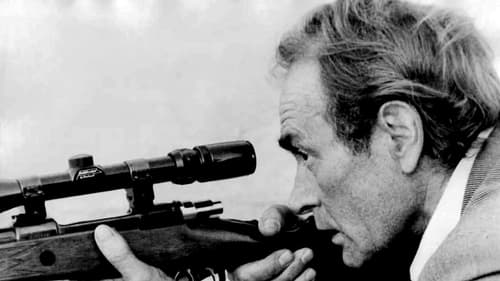
Co-Producer
In a fictitious South American country there's lots of political tension, the labor-unions have all their members on strike. The public demands the return of politician B. from exile. However private trucker Pal can't afford to strike, so he's beaten up and his truck burned. In the headlines he's described as strike-breaker. This is only part of an intrigue which shall get him to murder B.

Store's Owner (uncredited)
In a fictitious South American country there's lots of political tension, the labor-unions have all their members on strike. The public demands the return of politician B. from exile. However private trucker Pal can't afford to strike, so he's beaten up and his truck burned. In the headlines he's described as strike-breaker. This is only part of an intrigue which shall get him to murder B.

Editor
In the bourgeois circles of Europe after the Great War, can anything save the modern man? Harry Haller, a solitary intellectual, has all his life feared his dual nature of being human and being a beast. He's decided to die on his 50th birthday, which is soon. He's rescued from his solipsism by the mysterious Hermine, who takes him dancing, introduces him to jazz and to the beautiful and whimsical Maria, and guides him into the hallucinations of the Magic Theater, which seem to take him into Hell. Can humour, sin, and derision lead to salvation?

Co-Producer
The story of Charles Darwin's journey on The Beagle.
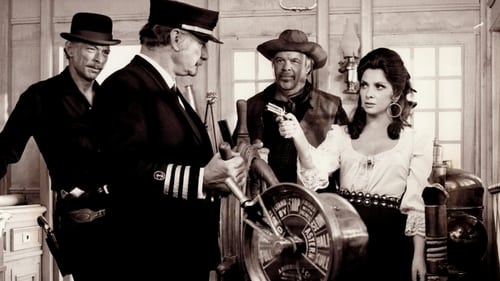
Executive Producer
Robber Roy King loses his wife, Alicia, to revolutionary Montero. Despite their rivalry they collaborate in an attempt to rob the Mexican government of one million dollars.
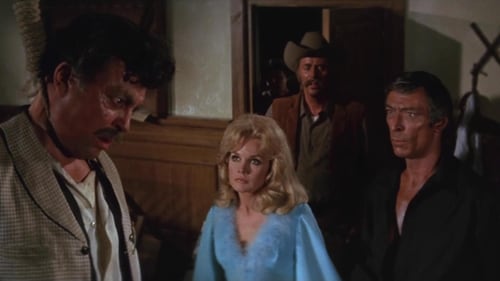
Producer
An Indian discovers plans to assassinate the president when he was investigating another murder.
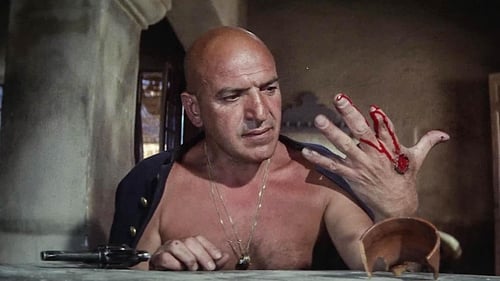
Director
A group of Mexican revolutionaries murders a town priest and a number of his christian followers. Ten years later, a widow arrives in town intent to take revenge from her husband's killers.

Director
The Spanish explorer Pizarro captures the Inca god-chief Atahualpa and promises to free him upon the delivery of a hoard of gold. But Pizarro finds himself torn between his desire for conquest and his sense of honor after friendship and respect develops between captive and captor.
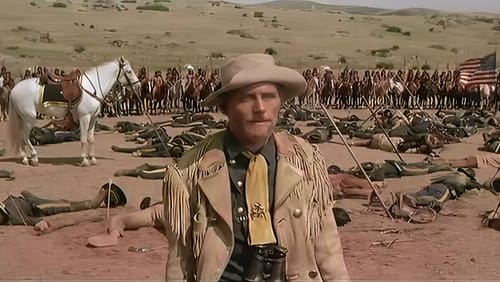
Executive Producer
Biopic of General George Armstrong Custer from his rise to prominence in the Civil War through to his "last stand" at the Battle of the Little Big Horn.
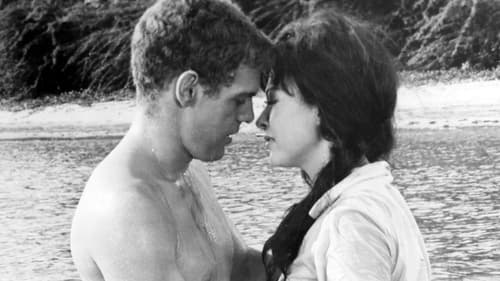
Director
During World War II, the spoiled son of a wealthy businessman finds himself involved in the guerrilla movement fighting against the Japanese, and finds romance and adventure.
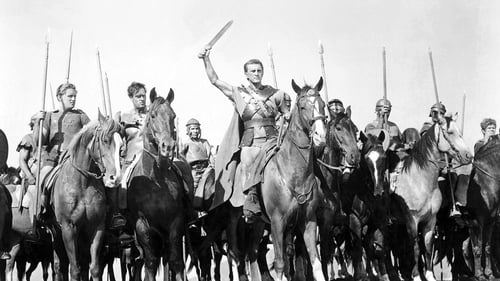
Editor
奴隷のスパルタカスは奴隷商人バタイアタスに買われ、剣闘士となり、剣闘士としての訓練を受けていた。ある日、ローマの偉大な将軍クラサスが訪れ、剣闘士の真剣勝負を要請した。スパルタカスを含め4人の奴隷が選ばれた。スパルタカスと黒人のドラバが戦い、スパルタカスを仕留める寸前にトラバはクラサスに向かって槍を投げつけたためその場で処刑される……。

Director
A young man tries to escape the South Side of 1920s Chicago.
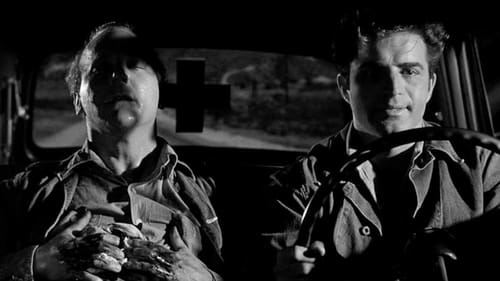
Director
An escaped convict gets a hold of some radioactive material after his escape. Authorities desperately try to find the man that unknowingly is threating the lives of everyone in the city.
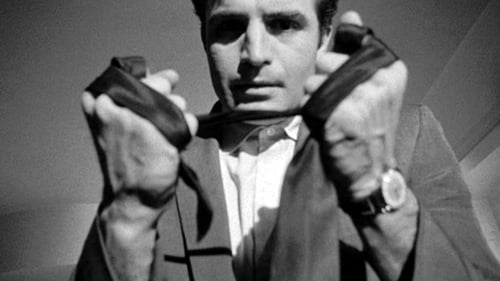
Director
Claude is a ruthless and efficient contract killer. His next target, a woman, is the most difficult.
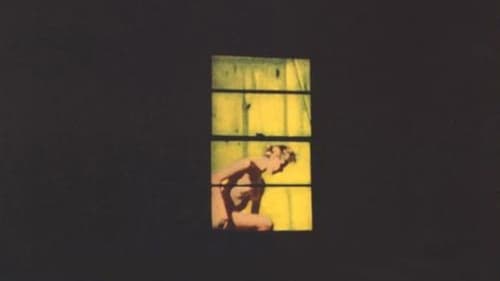
Director
A psychopathic young beachcomber pretends to befriend a mother and two daughters living at their summer home.
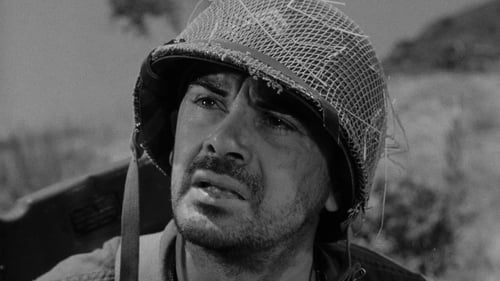
Production Supervisor
In Korea, on 6 September 1950, Lieutenant Benson's platoon finds itself isolated in enemy-held territory after a retreat. Soon they are joined by Sergeant Montana, whose overriding concern is caring for his catatonic colonel. Benson and Montana can't stand each other, but together they must get the survivors to Hill 465, where they hope the division is waiting. It's a long, harrowing march, fraught with all the dangers the elusive enemy can summon.
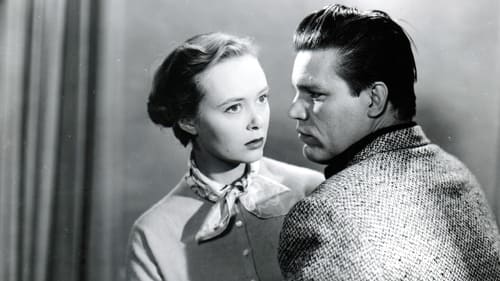
Director
Three women come to Hollywood to break into the movies.

Director
Muscle Beach was shown in competition at Cannes in 1949 and won a prize at the Edinburgh International Film Festival in 1951. The short became a cult favorite, screening at film clubs around the world. Strick used an army surplus movie camera to shoot the film during weekends in the fall of 1948. The songs in “Muscle Beach,” composed and sung by political folk singer Earl Robinson, with lyrics by screenwriter and poet Edwin Rolfe, accent the film’s three-movement structure as it transitions between soaring gymnastics shows, flirty beachgoers and children playing near the now-demolished pier at Ocean Park.
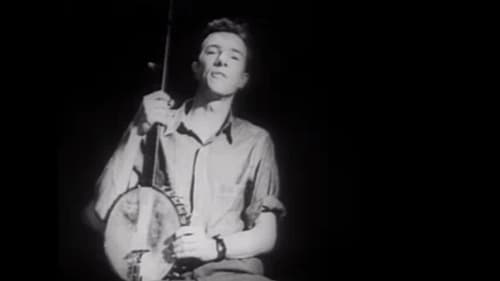
Producer
A short film about Pete Seeger and the birth of banjo music throughout the Southern United States.

Director
A short film about Pete Seeger and the birth of banjo music throughout the Southern United States.

Producer
War refugees begin new lives in a small Massachusetts town.

Editor
Hymn of the Nations, originally titled Arturo Toscanini: Hymn of the Nations, is a 1944 film directed by Alexander Hammid, which features the "Inno delle nazioni," a patriotic work for tenor soloist, chorus, and orchestra, composed by Italian opera composer Giuseppe Verdi in the early 1860s. (For this musical work, Verdi utilized the national anthems of several European nations.) In December 1943, Arturo Toscanini filmed a performance of this music for inclusion in an Office of War Information documentary about the role of Italian-Americans in aiding the Allies during World War II. Toscanini added a bridge passage to include arrangements of "The Star-Spangled Banner" for the United States and "The Internationale" for the Soviet Union and the Italian partisans. Joining Toscanini in the filmed performance in NBC Studio 8-H, were tenor Jan Peerce, the Westminster Choir, and the NBC Symphony Orchestra. The film also included the overture to Verdi's opera La Forza del Destino.

Producer
Hymn of the Nations, originally titled Arturo Toscanini: Hymn of the Nations, is a 1944 film directed by Alexander Hammid, which features the "Inno delle nazioni," a patriotic work for tenor soloist, chorus, and orchestra, composed by Italian opera composer Giuseppe Verdi in the early 1860s. (For this musical work, Verdi utilized the national anthems of several European nations.) In December 1943, Arturo Toscanini filmed a performance of this music for inclusion in an Office of War Information documentary about the role of Italian-Americans in aiding the Allies during World War II. Toscanini added a bridge passage to include arrangements of "The Star-Spangled Banner" for the United States and "The Internationale" for the Soviet Union and the Italian partisans. Joining Toscanini in the filmed performance in NBC Studio 8-H, were tenor Jan Peerce, the Westminster Choir, and the NBC Symphony Orchestra. The film also included the overture to Verdi's opera La Forza del Destino.

Director
The invention and use of a jeep are described, from the viewpoint of one of the vehicles.

Director
1943 documentary with Ingrid Bergman.

Camera Operator
Documentary showing the poor state that American agriculture had fallen into during the Great Depression.

Additional Director of Photography
Documentary showing the poor state that American agriculture had fallen into during the Great Depression.

Director
Inner city squalor in Philadelphia, Pennsylvania is the subject of this documentary, which focuses on a child returning from school to his home, a cramped and squalid apartment in a rat-infested slum neighborhood.

Editor
A stark documentary film about the economic and educational crises the mountain people of rural Appalachia faced at the tail end of the Dust Bowl period.

Editor
Educating the children of Appalachia.

Director
In 1936 and 1937 Harry Dunham shot "several hundred feet of film," being the first cameraman to penetrate into the Shensi region and obtain footage of the Communist forces in China. He smuggled his film out and placed it in the hands of Frontier Films. Leyda, Lerner, Meyers and Maddow (they had to use pseudonyms) spent four months preparing the film for publication. In that time, the Chinese situation altered to such an extent that Frontier had to change the scenario several times in order to keep up with events...the producers had to make a happy change in the theme of China Strikes Back. It was no longer a film showing the Chinese people moving toward unity. It became a pictorial history revealing the how and why behind a realized unity. (IMDb)

At a skid row mission, a cleric opines as men wait to eat. After his sermon, he brings out a pie and cuts it into small slices. The two men at the end of the line get none. They leave the mission and head for a garbage dump where junk becomes props for their play. A dress form becomes Mae West; a rusted car gives them a wild ride. Then, one dresses as a priest and promises pie in the sky. By the end, they sport metal halos.















